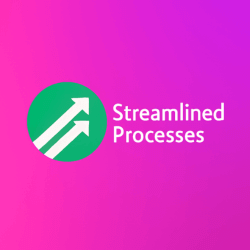For Marketing Automation Specialists, see our main page here.
What Do Marketing Automation Specialists Actually Do?
Marketing Automation Specialists focus on streamlining campaigns by using software to manage repetitive tasks. They help businesses scale efficiently by automating emails, social media posts, lead nurturing, and data segmentation.
For example, instead of manually sending follow-up emails to new subscribers, a specialist builds a workflow that does it automatically based on user behavior. This doesn’t just save time—it boosts accuracy and consistency across all channels.
As a result, businesses can focus on strategy and growth while technology handles execution. Most importantly, it helps marketing feel personal despite being automated.
Why Businesses Need Marketing Automation Specialists
As marketing tools grow in complexity, many companies realize they need dedicated expertise. Marketing Automation Specialists bridge the gap between strategy and tech.
They know how to identify the right platform for a company’s goals, configure it properly, and build campaigns that convert. Moreover, they ensure teams actually use the tools and data available—something many struggle with after onboarding new software.
In other words, these specialists make sure automation delivers measurable value over time.
Skills That Set Marketing Automation Specialists Apart
- Understanding customer journey mapping and audience segmentation
- Fluent use of platforms like HubSpot, Marketo, Pardot, and ActiveCampaign
- Strong analytical and A/B testing skills
- Proficiency in CRM integrations and lead scoring
- Strategic thinking with performance tracking abilities
Because they combine campaign strategy with technical know-how, these specialists stand out in both marketing and IT departments. Consequently, they’re often vital hires in fast-growing teams.
How Marketing Automation Specialists Drive ROI
It’s one thing to launch an email campaign. It’s another to scale that campaign across segments and devices while tracking results in real time. That’s where Marketing Automation Specialists excel.
Consider this example: A SaaS company was struggling with low lead-to-demo conversion rates. A specialist stepped in, restructured the onboarding process, and added triggered email series for inactive leads. In less than 90 days, demo bookings increased by 35%.
That’s the impact of actionable automation strategies—which drive either revenue or efficiency, and often both.
Industries That Benefit Most from Automation Expertise
While nearly any business can use automation, the following industries benefit most from dedicated Marketing Automation Specialists:
- Technology and SaaS
- Healthcare and medical practices
- B2B services and consulting
- E-commerce and retail
- Education and online courses
These sectors often rely on consistent customer journeys, behavior-based messaging, and precise tracking. Therefore, automation specialists become mission-critical hires in scaling environments.
Top Challenges They Help Solve
Without automation, marketing often hits a wall. Teams get bogged down managing contacts, fixing delivery errors, and running reports. Marketing Automation Specialists prevent that by addressing core issues before they become costly.
Common problems they’re hired to solve include:
- Lead leakage in the funnel
- Poor email deliverability
- Fragmented data across platforms
- Missed follow-up opportunities
- Lack of personalization at scale
By resolving these problems, teams regain time and clarity—two essential traits for high-converting marketing.
What Tools Do Marketing Automation Specialists Use?
There’s no one-size-fits-all answer here. Most Marketing Automation Specialists work across multiple tools depending on business size and needs. Popular platforms include:
- HubSpot – great for inbound and sales alignment
- Marketo – strong in enterprise-level B2B automation
- ActiveCampaign – ideal for lean startups and e-commerce
- Salesforce Pardot – powerful for data-rich campaigns
- Klaviyo – tailored for e-commerce growth
Tools vary in complexity, pricing, and features. Consequently, specialists often help in selecting, implementing, and customizing them for their clients or employers.
How Marketing Automation Has Evolved
The evolution of marketing automation dates back to bulk email tools in the 1990s. Since then, we’ve moved beyond one-size-fits-all campaigns. Today, marketers can personalize in real time, trigger chatbot journeys, and serve predictive ads—all thanks to advancement in automation tech.
With AI now embedded in most platforms, Marketing Automation Specialists play an even more strategic role. They ensure that AI tools are applied ethically, trained correctly, and optimized for long-term learning—not just short-term wins.
Are Marketing Automation Specialists Still Needed in the AI Era?
Absolutely. While AI can suggest templates and analyze data faster, it still needs human oversight. AI lacks the strategic foresight and empathy required in high-stakes messaging.
Marketing Automation Specialists are essential for making ethical decisions, setting campaign goals, and shaping brand tone. Therefore, AI is a tool in their toolkit—not their replacement.
FAQs About Marketing Automation Specialists
What certifications should a specialist have?
Top certifications include HubSpot Marketing Software, Marketo Certified Expert, Salesforce Pardot Specialist, and Google Analytics. Those prove both platform experience and analytical skill.
How do I know if I need a Marketing Automation Specialist?
If your team spends more time on execution than strategy, or if leads aren’t converting, it’s time to explore automation support. Likewise, growing teams often need systems in place before scaling further.
Is it better to hire in-house or outsource?
Small businesses may benefit from contract or agency assistance at first. As complexity grows, however, hiring in-house ensures consistency, speed, and deeper platform knowledge.
Do these roles work closely with sales teams?
Yes. Lead scoring, CRM syncing, and sales alerts are crucial to their roles. Therefore, Marketing Automation Specialists often act as a bridge between sales and marketing operations.
Final Thoughts
Marketing Automation Specialists aren’t just tech-savvy marketers—they’re systemic thinkers who help businesses scale. They combine data, content, and tools to build personalized journeys at scale. Most importantly, they allow marketing teams to act with focus, not guesswork.
This article was created with the assistance of AI tools and reviewed by our team at Streamlined Processes LLC to ensure accuracy and relevance.
Follow us on Facebook here.

